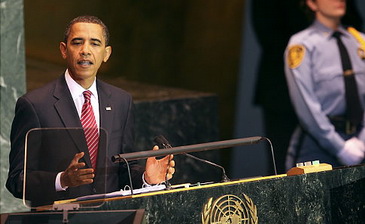Each year American farmers must feed an additional 80 million people internationally.

Image credit: ForeignPolicy.com
During the first two decades of my adult life, it was commonplace to see story after story about the starving people in places like Biafra. Some three decades later, I now understand more deeply the geopolitical ramifications of these tragedies. A friend of mine sent me an article from the May/June Foreign Policy magazine. It detailed the food supply challenges facing this planet’s growing population. The intensity of concern that this essay raises is palpable.
The article, The New Geopolitics of Food, by Lester R. Brown, opens with an example of what a 75% increase in wheat prices might mean to the average American who spends less than 1/10th of their income at the supermarket. The answer is…probably a ten cent increase in a loaf of bread. As a result, a $2.00 loaf of bread will become a $2.10 loaf of bread. He then contrasts that difference with the impact it would have in a place like New Delhi where that same wheat is carried home to be ground into flour. The cost of the wheat there is actually double what it was. Consequently, Brown states, the world’s poorest two billion people — who spend 50 to 70% of their income on food — will go from two to one meal a day. His evaluation of this situation is that it can, will, and has already resulted in revolutions and political upheaval.
When the reasons for these shortages are explored, it quickly becomes apparent that changes in our climate represent a major contributing factor. Be it too much hot dry weather, too many storms contributing to excessive rainfall, or soil that is simply exhausted from a lack of nutrients caused by depleted aquifers, the result leads to food becoming the hidden driver of world politics. As land and water become more limited, as temperatures go up and world food security deteriorates, scarcity is emerging as the norm, rather than than the exception.
 Until recently, the food supply was primarily in the hands of the world markets which were primarily monitored and sometimes driven by the United Nations’ World Food Program, but because of recent shortages and population growth, several countries have taken it upon themselves to secure their food supply in nontraditional ways. We are seeing unprecedented land grabs in developing countries, and water grabs from geographies where the end result creates shortages and where grain is being directly purchased from U.S. farmers. All of this is contributing to a global power struggle for food security.
Until recently, the food supply was primarily in the hands of the world markets which were primarily monitored and sometimes driven by the United Nations’ World Food Program, but because of recent shortages and population growth, several countries have taken it upon themselves to secure their food supply in nontraditional ways. We are seeing unprecedented land grabs in developing countries, and water grabs from geographies where the end result creates shortages and where grain is being directly purchased from U.S. farmers. All of this is contributing to a global power struggle for food security.
According to Brown, “With grain stocks low and climate volatility increasing, the risks are also increasing. We are now so close to the edge that a breakdown in the food system could come at any time.” For example, a 40% drop in grain production in the U.S. would be equivalent to a loss of 160 million tons of grain as opposed to a 40 million ton drop in Russia from the same percentage loss. This would be devastating to the world food supply. As long as oil is expensive, ethanol production will remain high and corn will be pulled from the food chain to the fuel chain. “Oil exporting countries that import grain would…barter oil for grain, and low income grain importers would [lose] out.”
Brown concludes:
“If we cannot produce higher crop yields with less water and conserve fertile soils, many agricultural areas will cease to be viable. Each year, 1,400 square miles of land in Northern China turn to desert. If we cannot move at wartime speed to stabilize the climate, we may not be able to avoid runaway food prices. If we cannot accelerate the shift to smaller families and stabilize the world population sooner rather than later, the ranks of the hungry will almost certainly continue to expand.”





